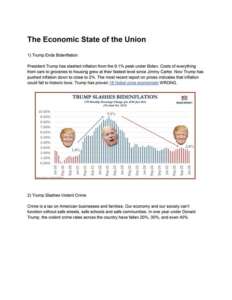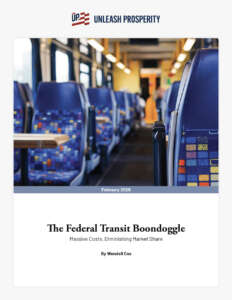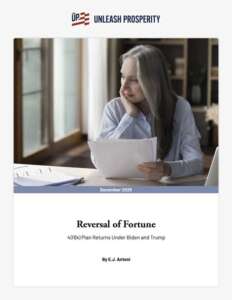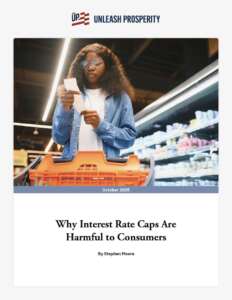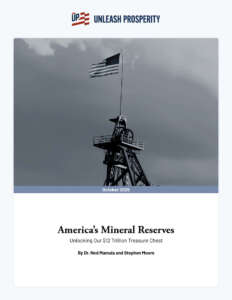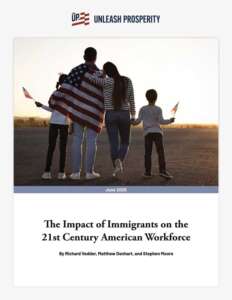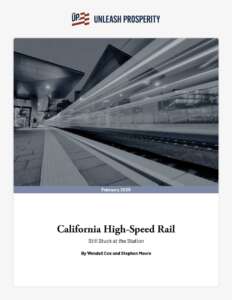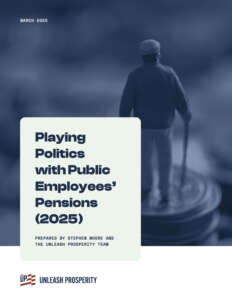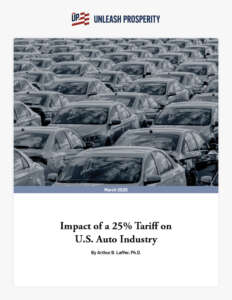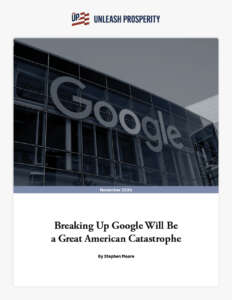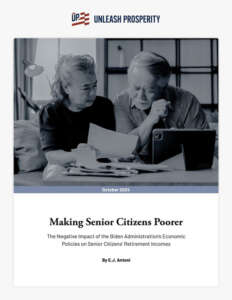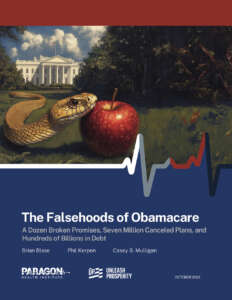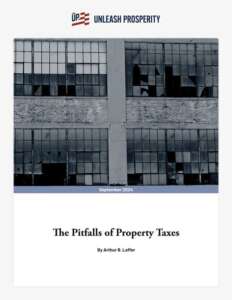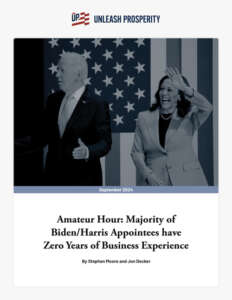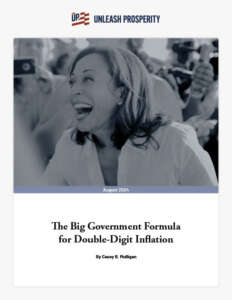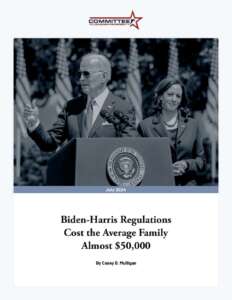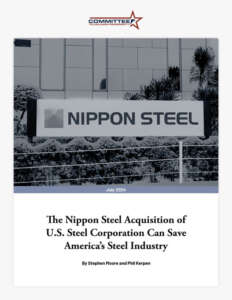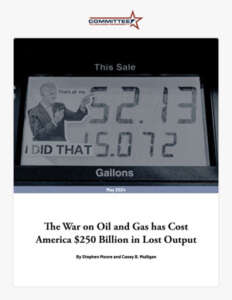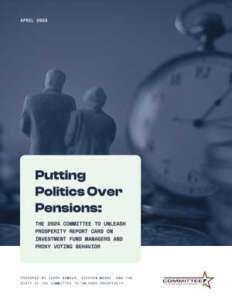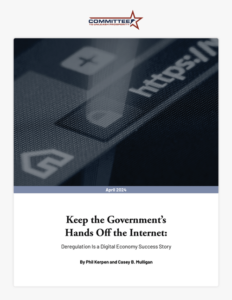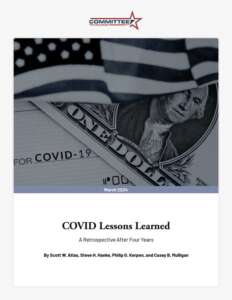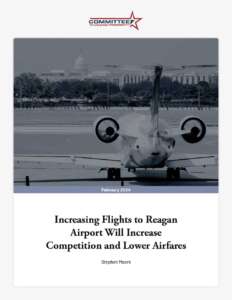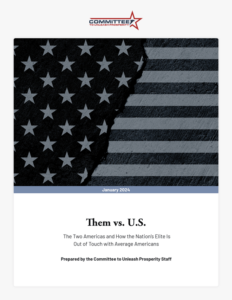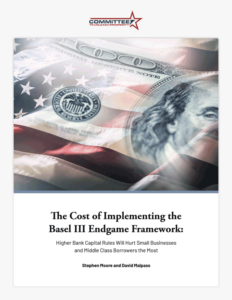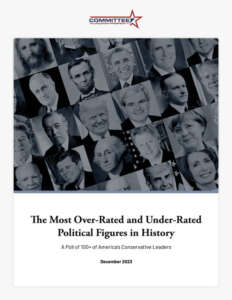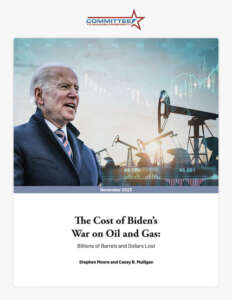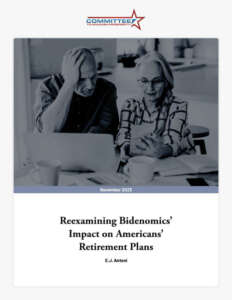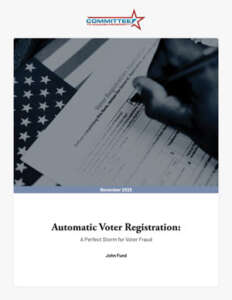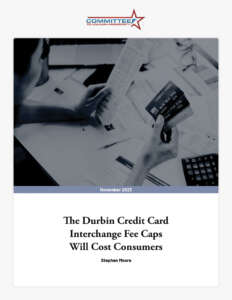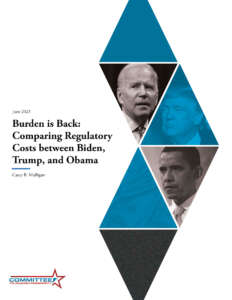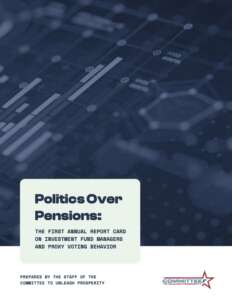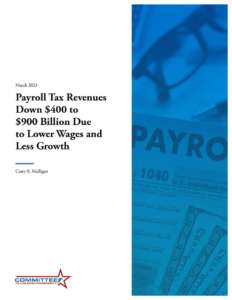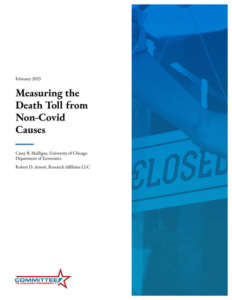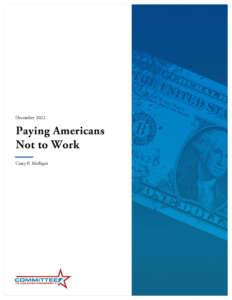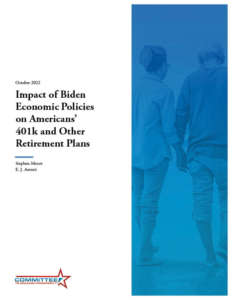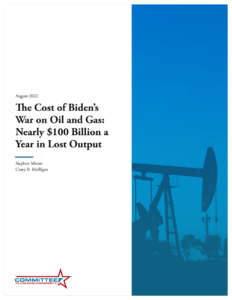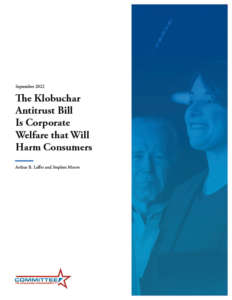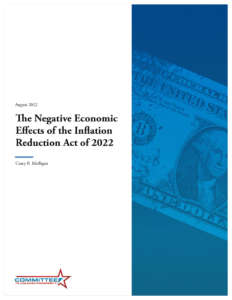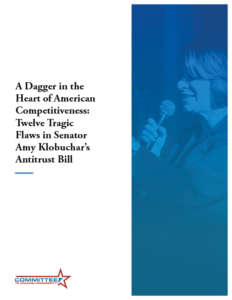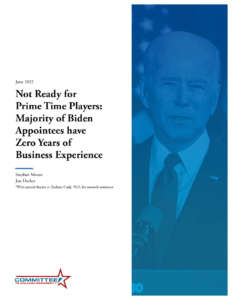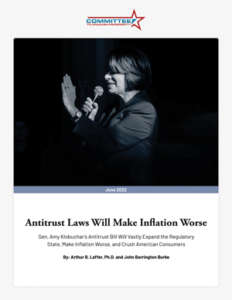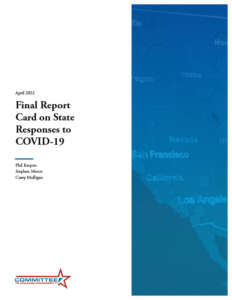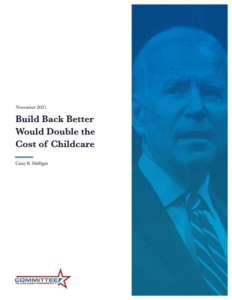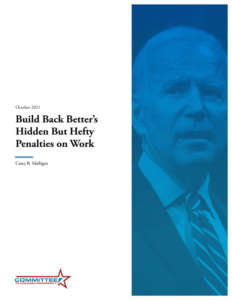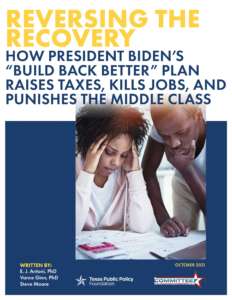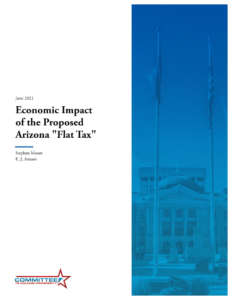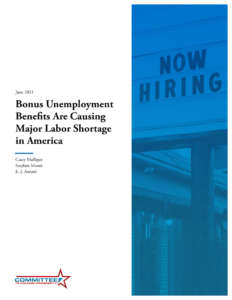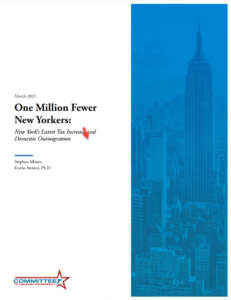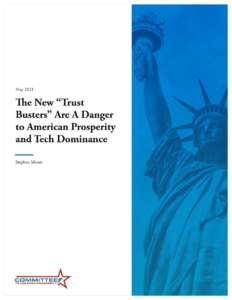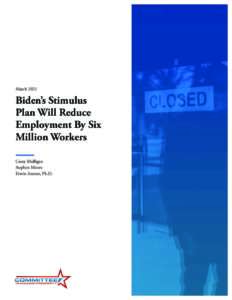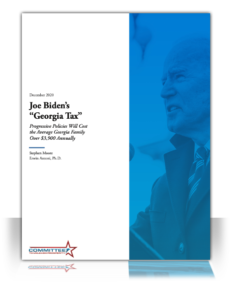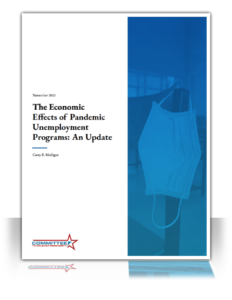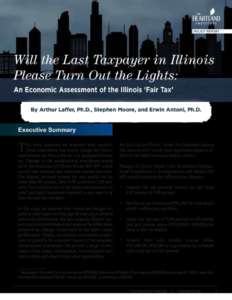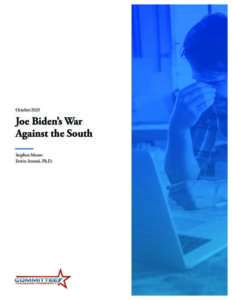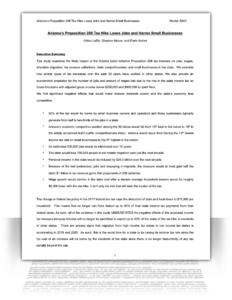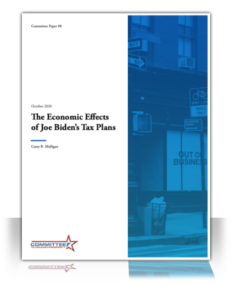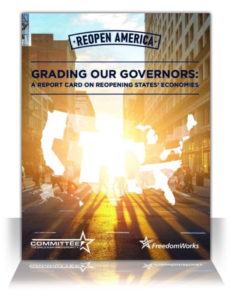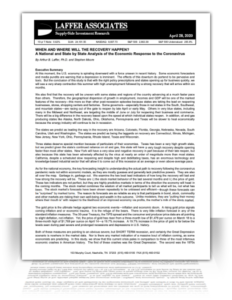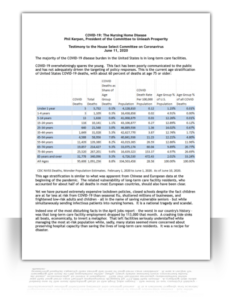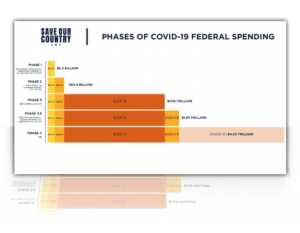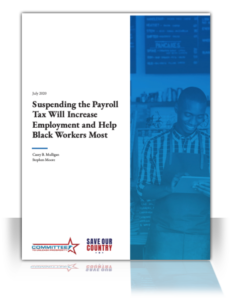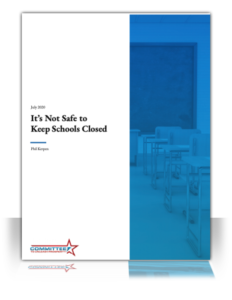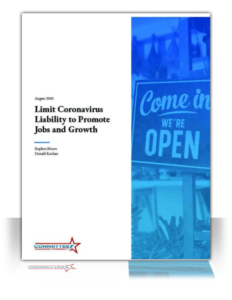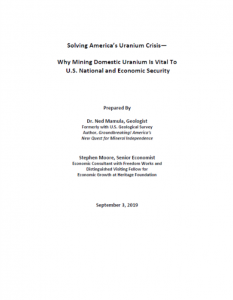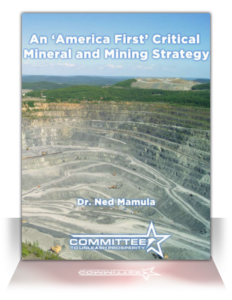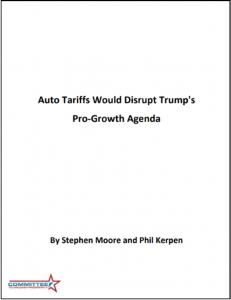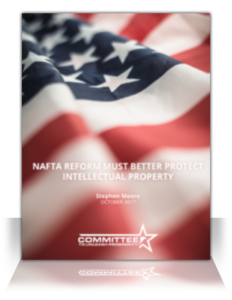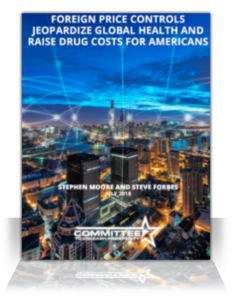Reports
The Economic State of the Union
Stephen Moore
Why Interest Rate Caps Are Harmful to Consumers
Stephen Moore
America’s Mineral Reserves: Unlocking Our $12 Trillion Treasure Chest
Dr. Ned Mamula and Stephen Moore
International Comparison for Drug Prescription Prices
Tomas J. Philipson, Deyu Zhang, and Qi Zhao
The Impact of Immigrants on the 21st Century American Workforce
Richard Vedder, Matthew Denhart, and Stephen Moore
Zelle and the Art of Combating Digital Scams
Stephen Moore and the Unleash Prosperity Team
Playing Politics with Public Employees’ Pensions (2025)
Stephen Moore and the Unleash Prosperity Team
Impact of a 25% Tariff on U.S. Auto Industry
Arthur B. Laffer, Ph.D.
The Falsehoods of Obamacare
Unleash Prosperity & Paragon Health Institute
The Pitfalls of Property Taxes
Dr. Arthur Laffer
Amateur Hour: Majority of Biden/Harris Appointees have Zero Years of Business Experience
Stephen Moore and Jon Decker
The Big Government Formula for Double-Digit Inflation
Casey B. Mulligan
Biden-Harris Regulations Cost the Average Family Almost $50,000
Casey B. Mulligan
The Nippon Steel Acquisition of U.S. Steel Corporation Can Save America’s Steel Industry
Stephen Moore and Phil Kerpen
The War on Oil and Gas has Cost America $250 Billion in Lost Output
Stephen Moore and Casey B. Mulligan
Putting Politics Over Pensions: The 2024 Unleash Prosperity Report Card on Investment Fund Managers and Proxy Voting Behavior
Jerry Bowyer, Stephen Moore and the Staff of Unleash Prosperity
The Capital One-Discover Deal Increases Competition and Benefits Consumers
Steve Moore and Phil Kerpen
Keep the Government’s Hands Off the Internet: Deregulation Is a Digital Economy Success Story
Phil Kerpen and Casey B. Mulligan
COVID Lessons Learned: A Retrospective After Four Years
Scott W. Atlas, Steve H. Hanke, Philip G. Kerpen, and Casey B. Mulligan
The Most Over-Rated and Under-Rated Political Figures in History
Unleash Prosperity
The Cost of Biden’s War on Oil and Gas: Billions of Barrels and Dollars Lost
Stephen Moore and Casey B. Mulligan
Measuring the Death Toll from Non-Covid Causes
Casey B. Mulligan and Robert D. Arnott
Paying Americans Not to Work
Casey B. Mulligan and E.J. Antoni
Impact of Biden Economic Policies on Americans’ 401k and Other Retirement Plans
Stephen Moore and E. J. Antoni
The Cost of Biden’s War on Oil and Gas: Nearly $100 Billion a Year in Lost Output
Stephen Moore and Casey B. Mulligan
The Klobuchar Antitrust Bill Is Corporate Welfare that Will Harm Consumers
Arthur B. Laffer, Stephen Moore, John Barrington Burke
A Dagger in the Heart of American Competitiveness: Twelve Tragic Flaws in Senator Amy Klobuchar’s Antitrust Bill
Stephen Moore and Matthew Rees
Antitrust Laws Will Make Inflation Worse
Arthur B. Laffer, Ph.D. and John Barrington Burke
Final Report Card on State Responses to COVID-19
Phil Kerpen, Stephen Moore, and Casey Mulligan
Build Back Better Would Double the Cost of Childcare
Casey B. Mulligan
Build Back Better’s Hidden But Hefty Penalties on Work
Casey B. Mulligan
Reversing the Recovery: How President Biden’s “Build Back Better” Plan Raises Taxes, Kills Jobs, and Punishes the Middle Class
E. J. Antoni, PhD, Vance Ginn, PhD, and Steve Moore
Economic Impact of the Proposed Arizona “Flat Tax”
Stephen Moore and E. J. Antoni
Bonus Unemployment Benefits Are Causing Major Labor Shortage in America
Casey Mulligan, Stephen Moore and Erwin Antoni, PHD
One Million Fewer New Yorkers: New York’s Latest Tax Increase and Domestic Outmigration
Stephen Moore and Erwin Antoni, PHD
Biden’s Stimulus Plan Will Reduce Employment By Six Million Workers
Casey Mulligan, Stephen Moore and Erwin Antoni
Joe Biden’s “Georgia Tax”: Progressive Policies Will Cost the Average Georgia Family Over $3,900 Annually
Stephen Moore & Erwin Antoni, Ph.D.
The Economic Effects of Pandemic Unemployment: An Update
Casey B. Mulligan
Will the Last Taxpayer in Illinois Please Turn Out the Lights: An Economic Assessment of the Illinois ‘Fair Tax’
Arthur Laffer, Ph.D., Stephen Moore & Erwin Antoni, Ph.D.
Joe Biden’s War Against the South
Stephen Moore & Erwin Antoni, Ph.D.
Arizona’s Proposition 208 Tax Hike Loses Jobs and Harms Small Businesses
White Paper #9
Arthur Laffer, Stephen Moore, and Erwin Antoni
The Economic Effects of Joe Biden’s Tax Plans
Casey B. Mulligan
Grading Our Governors: A Report Card on Reopening States’ Economies
Unleash Prosperity & FreedomWorks
When And Where Will The Recovery Happen?: A National and State by State Analysis of the Economic Response to Coronavirus
Arthur B. Laffer, Ph.D. & Stephen Moore
Suspending the Payroll Tax Will Increase Employment and Help Black Workers Most
Casey B. Mulligan & Stephen Moore
It’s Not Safe to Keep Schools Closed
Phil Kerpen
Limit Coronavirus Liability to Promote Jobs and Growth
Stephen Moore & Donald Kochan
Fix Social Security By Creating Own America Personal Accounts for All Workers
Stephen Moore, Jeff Yass, Peter J. Ferrara and Steven J. Entin
Democratic presidential candidates like Elizabeth Warren, Bernie Sanders and Cory Booker have made inequality a central issue in the campaign. But their plans for minimum-wage hikes, wealth taxes and income-tax rates of 50%-70% would restrain the economy and hurt all Americans.
The U.S. uranium mining industry is in crisis today due to certain foreign state-owned companies and entities undermining free-market uranium through predatory practices. U.S, uranium production has also suffered from years of anti-mining regulatory and environmental policies that have left the domestic industry dormant. As of 2019, more than 99 percent of U.S. uranium supplies are imported, much of it from Russia, Kazakhstan, and Uzbekistan. China is also ramping up its ability to supply more cheap uranium to the U.S. These are not friendly ally nations that America can depend on.
An America First Critical Mineral and Mining Strategy
Dr. Ned Namula
Arguably, no nation on earth has been endowed with a greater abundance of critical and rare earth minerals than the United States.
The National Mining Association estimates that the United States sits atop $6 trillion in mineral resources. We could be easily adding $50 to 100 billion to our GDP every year through a smart, pro-growth mining policy.
If all 17 rare earth elements were counted separately—as they should be—the United States is importing 37 minerals at 100 percent, for a total of 67 key minerals imported at more than 50 percent reliance.
Auto Tariffs Would Disrupt Trump’s Pro-Growth Agenda
Steven Moore and Phil Kerpen
Donald Trump ran for president promising a tougher stance on trade deals. He argued that many of these agreements were unfair to American companies and U.S. workers and promised to bring back jobs and factories that had fled these shores for nations like Mexico, China, and Japan. In particular he expressed concern for American steel and auto workers whose jobs were being lost due to “lousy trade deals.” This was often a popular position with blue collar union workers whose wages had been stagnant for nearly two decades.
Donald Trump ran for president promising a tougher stance on trade deals. He argued that many of these agreements were unfair to American companies and U.S. workers and promised to bring back jobs and factories that had fled these shores for nations like Mexico, China, and Japan. In particular he expressed concern for American steel and auto workers whose jobs were being lost due to “lousy trade deals.” This was often a popular position with blue collar union workers whose wages had been stagnant for nearly two decades.
Foreign Price Controls Raise Drug Costs for Americans
Steven Moore and Steve Forbes
Perhaps the most common complaint about the U.S. health care system is that Americans spend more on medical care than the citizens of any other nation without commensurate health benefits. While our health care delivery and insurance systems have many inefficiencies, one element that can drive up costs is global in scope: compared with citizens of other developed countries, Americans bear a disproportionate share of the hundreds of billions of dollars spent each year developing new drugs, vaccines,medical devices, and other life-saving health technologies.

